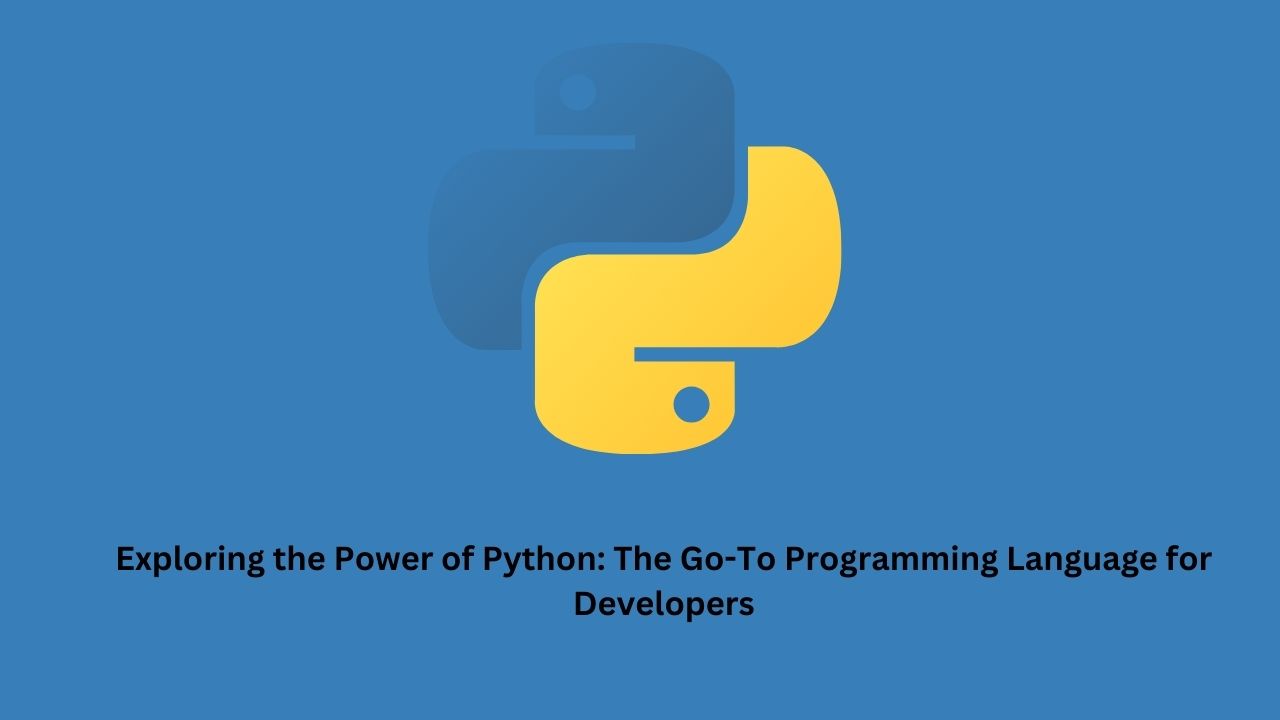Python has gradually become one of the most widely used programming languages worldwide. Python provides a strong and flexible toolkit that can be used by developers of all expertise levels, whether they are novices just starting out in the world of coding or seasoned professionals creating intricate systems. This blog will discuss the unique features of Python, its many uses, and why it's an essential language for everyone with an interest in technology.
What is Python?
Python is a high-level, interpreted programming language that is renowned for being easy to understand and use. Guido van Rossum created Python, which was originally made available in 1991 and places a strong emphasis on code readability by using a lot of indentation. Developers may convey ideas in fewer lines of code thanks to its design philosophy than with languages like Java or C++.
Key Features of Python
-
Simple Syntax: Python’s syntax is straightforward and mirrors natural language, making it easy for beginners to learn and use.
-
Versatility: Python can be used for web development, data analysis, artificial intelligence, scientific computing, automation, and more.
-
Extensive Libraries: With libraries like NumPy, Pandas, TensorFlow, and Flask, Python provides tools for almost every application imaginable.
-
Cross-Platform: Python runs on various platforms, including Windows, macOS, Linux, and even mobile devices.
-
Community Support: Python boasts a massive global community, ensuring a wealth of resources, tutorials, and forums to help developers.
Applications of Python
1. Development of Web Page
Python frameworks such as Flask and Django make it simple to create reliable web applications. These frameworks have integrated capabilities for managing user authentication, database operations, and other tasks.
2. Machine learning and data science
For those working in data science and machine learning, Python is the best option. Developers may work with data, visualise outcomes, and build predictive models with the help of libraries like Pandas, Matplotlib, and Scikit-learn.
3. The use of automation
With Python scripts, repetitive processes like file conversions, web scraping, and report production may be easily automated.
4. Development of Video Games
Game developers can start with Python's Pygame library, which offers the resources required to make basic games.
Fifth, Embedded Systems and IoT
With MicroPython and CircuitPython, Python has made its way into embedded systems development and the Internet of Things, enabling hardware prototyping and interactivity.
6. NLP (natural language processing) and AI (artificial intelligence)
With frameworks like PyTorch, Keras, and TensorFlow, Python enables AI systems. In NLP, human language data is processed and analysed using libraries such as NLTK and SpaCy.
Why Should You Learn Python?
-
Beginner-Friendly: Its clear and simple syntax makes Python the ideal first language for those new to programming.
-
High Demand in the Job Market: Python developers are in high demand across industries, with competitive salaries to match.
-
Wide Adoption: Python is used by tech giants like Google, Facebook, and Netflix, as well as in academia and startups.
-
Future-Proof: With its continuous evolution and adoption in emerging fields like AI, Python remains a relevant and powerful language for the future.
How to Get Started with Python
-
Install Python: Download and install Python from the official Python website.
-
Learn the Basics: Start with fundamental concepts like variables, loops, and functions. Free platforms like W3Schools and Codecademy are excellent resources.
-
Experiment: Build small projects, such as a calculator or a to-do list app, to practice your skills.
-
Explore Libraries: Familiarize yourself with popular libraries like NumPy, Pandas, and Matplotlib to unlock Python’s full potential.
-
Join the Community: Engage with Python communities on GitHub, Reddit, or Stack Overflow to learn from others and share your knowledge.
Conclusion
Python is more than just a programming language—it’s a gateway to endless possibilities in the tech world. Its versatility, simplicity, and robust ecosystem make it a language that every aspiring developer should learn. Whether you want to automate mundane tasks, dive into data science, or build cutting-edge AI systems, Python has something to offer.
If you have any questions or concerns, please feel free to let us know. Our team will connect with you shortly to assist.




Login to leave a comment.